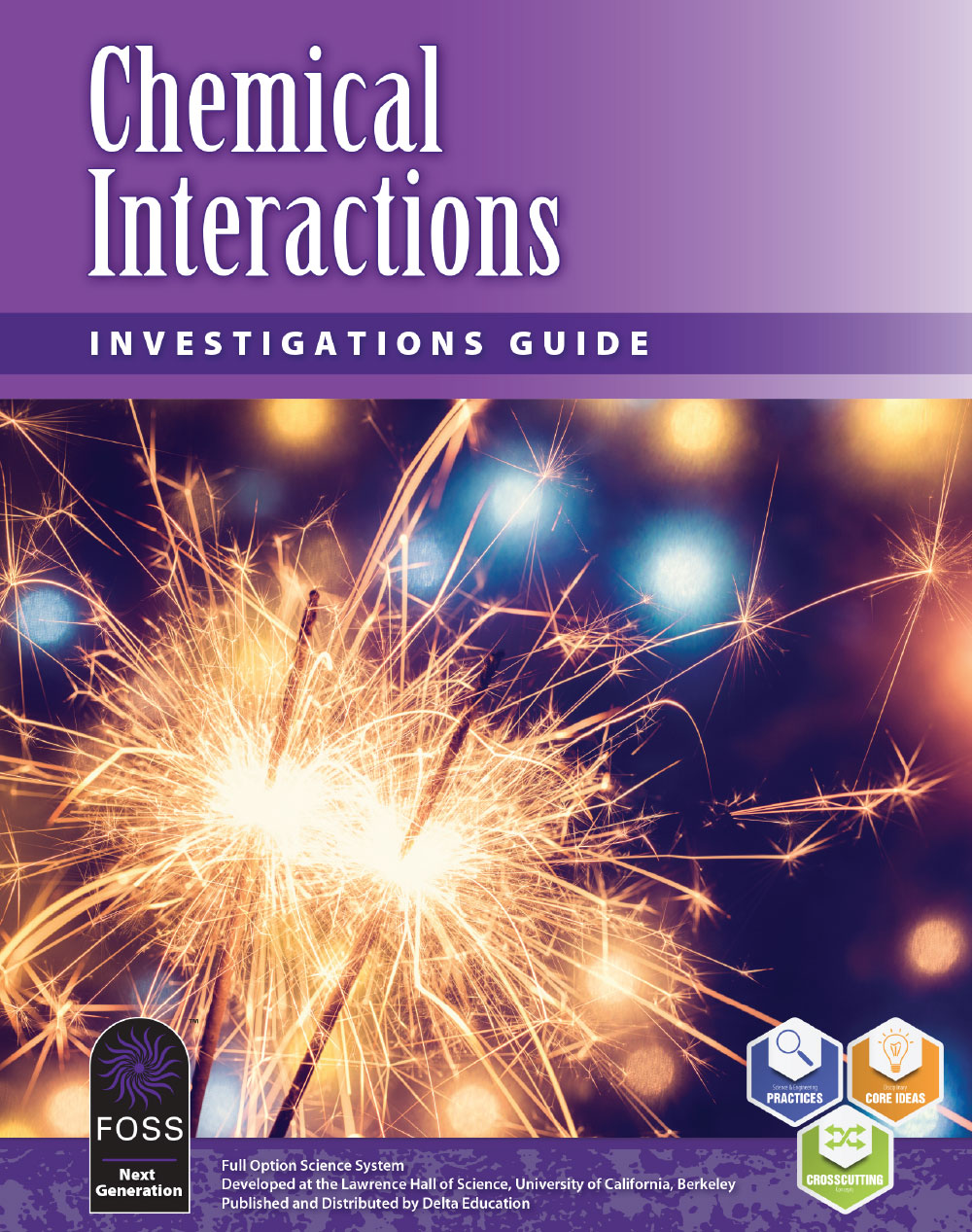FOSS Next Generation Chemical Interactions
Grades 6 – 8

In the Chemical Interactions Course, students conduct experiments to observe macroscopic matter transformations and apply kinetic particle theory to explain those transformations at the microscopic level. They also observe energy transfers associated with reactions and infer energy transfers associated with phase change. A diverse mix of empirical experiences and theoretical models helps students construct a solid basic understanding of the composition of their world and the interactions that maintain and transform it.
Investigation 1: Substances
Introduced to substances as unique forms of matter.
Investigation 2: Elements
Learn that elements are the fundamental substances from which all matter is made.
Investigation 3: Particles
Introduce the particle theory of matter and explain how gas can be compressed.
Investigation 4: Kinetic Energy
Observe expansion and contraction of solids, liquids, and gas, and explain those observations in terms of kinetic energy.
Investigation 5: Energy Transfer
Observe expansion and contraction of solids, liquids, and gas, and explain those observations in terms of kinetic energy.
Investigation 6: Heat of Fusion
Determine the amount of heat needed to change solid water (ice) into liquid water.
Investigation 7: Phase Change
Discover what phases of matter are and how phase can be changed by altering the kinetic energy of particles.
Investigation 8: Solutions
Observe dissolving and explain the change in the appearance of substances at the particle level.
Investigation 9: Reaction
Observe that starting substances (reactants) change into new substances (products) during reactions.
Investigation 10: More Reactions
Observe additional reactions and learn about limiting factors in reactions.